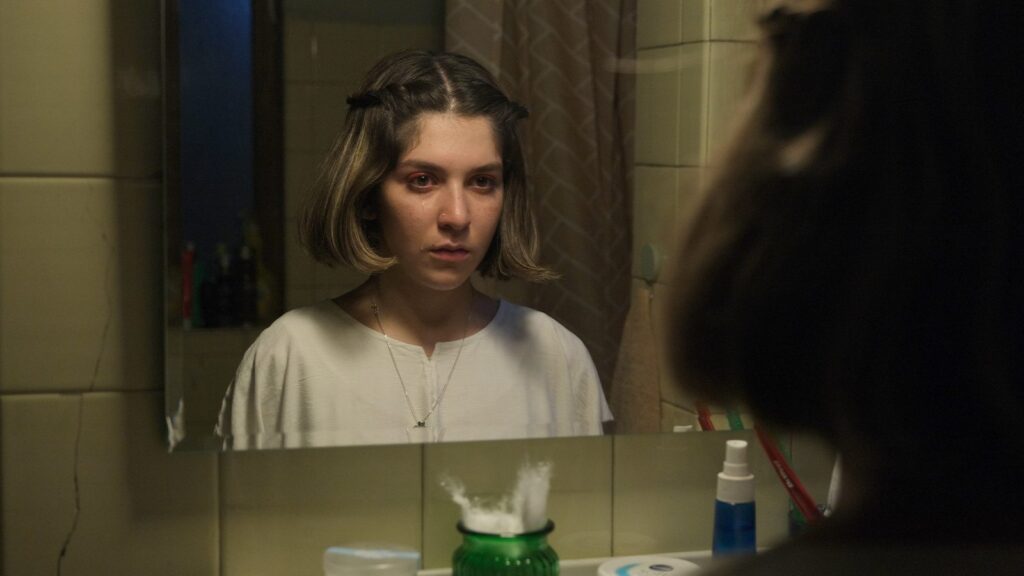Title: Bidad
Foreign Title: Bidad
Year: 2025
Country: Iran
Language: In Farsi with English subtitles
Director: Soheil Beiraghi
As this is a film about music, it feels right to begin with two musical quotes:
“Freedom is just another word for nothin’ left to lose” — Me and Bobby McGee (written by Kris Kristofferson, made immortal by Janis Joplin).
“Rich man can’t imagine poor” — The Reckoning Song (written and performed by Asaf Avidan).
Living in the liberal, democratic West, we might think we understand the hardships of life under a totalitarian, theocratic, patriarchal regime such as Iran. But can we really grasp what it means on a daily basis?
Seti, a young woman in her early twenties, lives in modern-day Tehran with her mother, chillingly portrayed by Leili Rashidi. With her cropped platinum hair and sharp presence, the mother is an alcoholic — broken by the knowledge that she once dreamed of being a singer but was silenced under Sharia law. Torn between protecting her daughter and encouraging her to chase the very dream she lost, she emerges as perhaps the film’s true victim. Seti, too, loves to sing, but unlike her mother, she refuses to conform. In Iran, where women are forbidden not only from showing their hair and bodies but also from singing and dancing, she rejects the “safe” options of women-only choirs or anonymous background vocals. Instead, she takes her voice to the streets. At first, Seti performs to no audience. But as her videos spread online, she gains a following, inspiring other young women and becoming a voice for a generation longing to fight back. Her courage, however, draws not only admiration but also the attention of the regime. With the help of a mysterious tattoo artist, she briefly tastes freedom, but retaliation comes swiftly, and the punishment is severe. Her complex relationship with her mother climaxed to an inevitable explosion, her voice and base of followers are all but gone. But as it always happens, the film manages to close with a faint glimmer of hope.
Bidad is a powerful film. While at moments — especially early on — it veers toward the didactic, it quickly immerses the viewer. The shadow of the regime looms heavily throughout, and the tension is palpable. Joplin’s words resonate in open societies, but in closed ones, there is always something left to lose.
Unlike the poetic cinema of Iranian masters such as Makhmalbaf, Kiarostami, or Jafari, Beiraghi’s Bidad embraces a more direct, traditional narrative form. It is straightforward, urgent, and uncompromising film, driven by strong performances, sharp cinematography, and confident storytelling.




